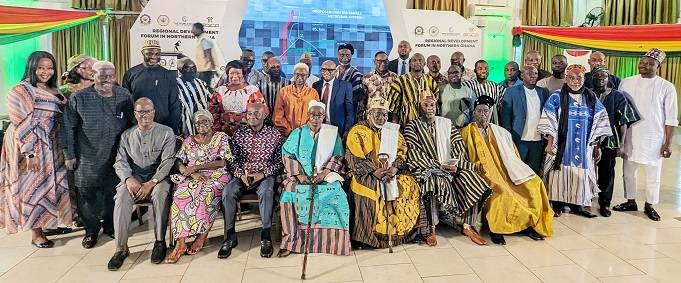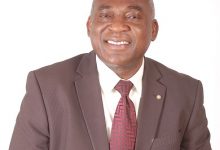
The Minister of Local Government, Decentralisation and Rural Development (MLGDR), Mr Dan Kwaku Botwe, has called for effective collaboration between civil society groups and the district assemblies to ensure accelerated development in the Northern Sector.
He said the government’s effort to bridge the development gap between the north and the south would continue to be a mirage without the active participation of the various stakeholders.
Mr Botwe made the call during a Regional Development Forum (RDF) held here on Tuesday.
The objective of the forum was to engage key stakeholders on key issues impacting development and resilience of the northern part of Ghana.
He noted that several development interventions that successive governments had designed and implemented over the years to bridge the gap between the north and south had not yielded the needed results.
The minister charged the assemblies to step up their efforts to involve the chiefs and other stakeholders in their activities at all times.
He stated that, the project would support civil and political inclusion of the youth, since it was critical for them to channel their energy and aspirations, and create the space for self-expression, and to “transform potential frustrations into constructive local actions.”
“In addition, the project will support the inclusion of pastoralist groups, who will be engaged as part of community-driven development approach in local activities to ensure project investments address broader needs,” he added.
Mr David Queye Annang, Vice chairperson for NDPC, said the primary objective of the forum was to initiate conversation on the development challenges in order
to suggest policy recommendations and utilise the Gulf of Guinea Northern Regions Social Cohesion Project foundational platform to enhance resilience, and specifically identify solutions and respond to the challenges posed by climate change.
He said the goal could not be achieved without paying attention to the multiple dimensions of sustainable development including climate, health, agriculture, investment, peace, and security.
He added that the forum was to effectively measure progress made by the NDPC as well as identify key actions for the achievement of the needed development”.
“It is our belief that we would be able to promote strong links between ecological governance, ecosystem resilience, and community resilience, with the ultimate goal of realising the aspirations of the local population and facilitating comprehensive community investments for local development,” he added.
Prof. Ramatu Mahama Al-Hassan, Professor of Agricultural Economics at the University for Development Studies (UDS), said that the role of public policy in catalysing wellbeing through equitable and balanced development in the Northern Region was to ensure that everyone could build knowledge and skills, access safe and affordable economic and social resources, and opportunities for generating income, and accumulate assets.
She said the ecological zone of northern Ghana carried a higher share of the country’s burden of climatic hazards as compared to the southern zone, increasing temperatures and evaporation rates in the Volta Basin, creating widespread risks to water availability across northern Ghana.
Prof. Al-Hassan enumerated the indications of climate change impacts as increasing frequencies of droughts and floods, rising temperatures, decreasing rainfall amounts, and more erratic onset of rains in north of the country
FROM GEOFFREY BUTA, TAMALE







